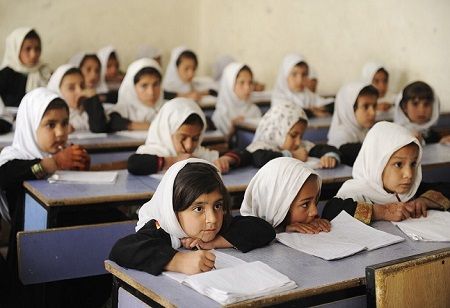The Malala Fund has allocated more than $1.5 million in new funding to support 13 organizations offering digital and alternative learning opportunities for Afghan girls. This initiative comes amid ongoing restrictions imposed by the Taliban, which have denied secondary education to girls in Afghanistan for over 1,000 days. As a result, millions of Afghan women and girls face severe gender discrimination, restricting their access to education, employment, and public engagement.
Despite the challenging circumstances, numerous Afghan women and girls are resolute in pursuing their education covertly, as reported by the Malala Fund. This organization was established by Malala Yousafzai, the youngest Nobel Peace Prize laureate and a prominent advocate for girls' education. "We are proud to support these innovative initiatives", stated Sahar Halaimzai, director of the Malala Fund’s Central Asia initiative. "By offering digital and alternative education pathways, we ensure Afghan girls can continue their education despite the challenges of the past three years".
Through these initiatives, up to one million Afghan girls could access educational content delivered via satellite television and online classes conducted at home. Afghanistan remains the only country globally where girls are entirely prohibited from attending school, a situation that existed even before the Taliban's resurgence when 3.7mn young people, predominantly girls, were already out of school. The Taliban's policies have since prevented an additional 1.2mn girls from attending secondary school.
Over the past twenty years, Afghan social workers have achieved notable advancements in reconstructing the education system, facilitating the enrollment of millions of girls and women in schools. However, the Taliban's resurgence in 2021 has undermined these gains, resulting in a situation where half of the nation's populace is now deprived of educational prospects. Since 2017, the Malala Fund has collaborated with local groups to enhance access to free, secure, and high-quality education for Afghan girls. Additionally, the organization has focused on training and deploying female educators to address the shortage in teaching staff.
After the Taliban assumed control, numerous educators encountered retaliation for promoting girls' access to education. Measures have been taken to assist these educators, including facilitating their evacuation and supporting alternative educational initiatives for girls amid school closures. On the advocacy front, the Malala Fund persists in urging regional and global entities to exert pressure on the Taliban regime to reopen schools for girls. The international reaction to the Taliban's rise to power has precipitated a humanitarian and economic crisis, intensifying obstacles to girls' education in Afghanistan.
The Taliban had previously promised to reopen schools for all girls by the end of March, but this commitment remains unfulfilled. "The ban on educating girls contradicts both secular and religious principles, hindering the Taliban's quest for international recognition", remarked Sultan Barakat, a lecturer at Hamad Bin Khalifa University in Qatar and the University of York. Civil society organizations argue that the international community should use policy instruments to ensure the safe return of Afghan girls to school.

